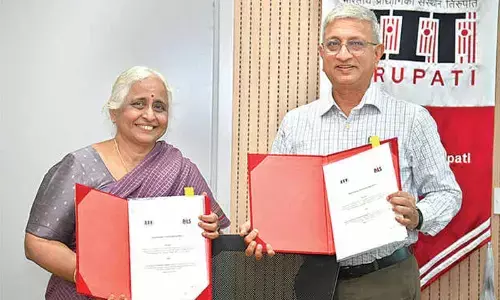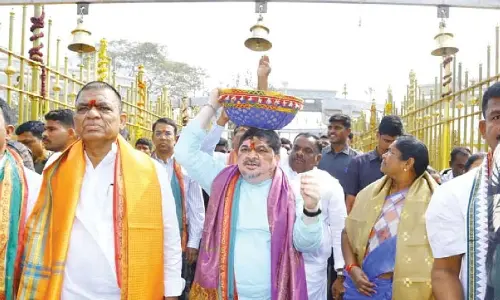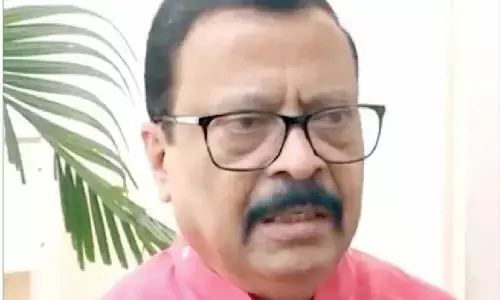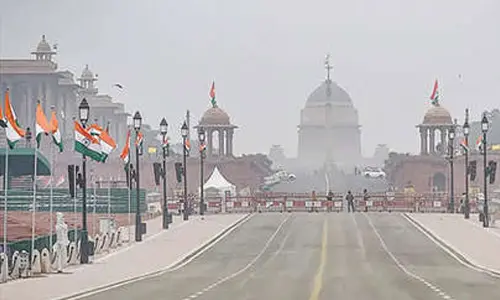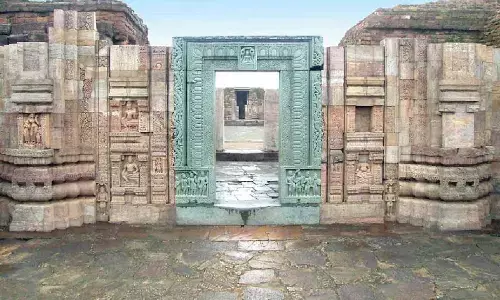Shinde revolt a wake-up call to dynasts
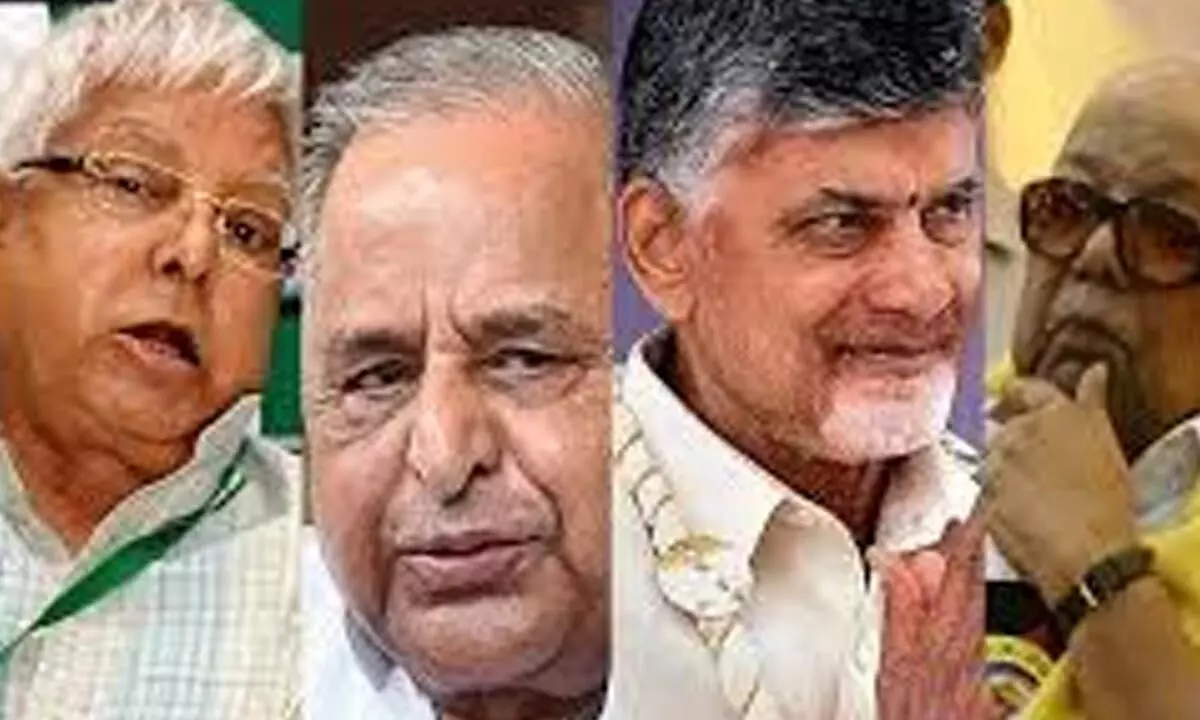
Shinde revolt a wake-up call to dynasts
The happenings in Maharashtra have thrown up several questions. Is it really a rebellion against a dynasty or a political tussle to get power?
The happenings in Maharashtra have thrown up several questions. Is it really a rebellion against a dynasty or a political tussle to get power?
Eknath Shinde has made it a fight for "setting the party on the right path," which clearly means a return to its late supremo Bal Thackeray's core Hindutva ideology, giving up on the Maha Vikas Agadhi (MVA) alliance and going back to the "old friend", the BJP. Chief Minister Uddhav Thackeray's dwindling camp and his MVA partners have accused the BJP of engineering the plot.
Shinde's accession may set a new course in the political setup of the country. Now, the big question is: Can India shake off dynasty politics?
Some of India's most powerful political families include the Gandhis, Tamil Nadu's Karunanidhi family, Uttar Pradesh's Yadav family, Bihar's Lalu Prasad dynasty, Kashmir's Muftis and Abdullahs, Punjab's Badals, Haryana's Chautalas, Hoodas, Jindals and Bishnois, Jharkhand's Sorens and Jogis, Scindias in Madhya Pradesh and Rajasthan, the Thackerays and Pawars in Maharashtra, Sangmas in Meghalaya, Karnataka's Deve Gowda and Yediyurappa families, the NTR and YSR families of Andhra ... The list is very long.
Can these political parties exist without the families that have been controlling them? Can we imagine the Congress without the Gandhis, National Conference without the Abdullahs, RJD minus Lalu or the Samajwadi Party without Mulayam-Akhilesh, TRS without the Raos, etc, etc? In fact, it may be a difficult proposition, perhaps in most of these parties the family without the party seems to be an unacceptable concept. The party without the family nameplate, or the owner family sans the party, both seem like impossible ideas.
Except for the Congress, which briefly had two non-Gandhis at the helm, the rest have not deviated from the family ownership pattern. These parties have seen family feuds, some breaking away and joining rivals or forming new parties, but the family's hold has not been diluted. Non-family leaders keep trudging along, bowing to the dynasty and fading away in the course of time.
Challenge to the dynasty
The sudden implosion in Maharashtra's Shiv Sena has stunned political observers. Can an entrenched dynasty be challenged this way? Perhaps Eknath Shinde has shown the way. A 'courageous' move that has all the BJP's backing. Uddhav Thackeray's Man Friday is now his arch-rival and the CM. Fifty-six years after the party was formed, the Thackerays are on the brink of losing their Sena.
It was on June 19, 1966, when Bal Thackeray formed the party that later made Hindutva its core ideology. But son Uddhav and grandson Aaditya deviated from the core ideology and went with those whom the founding father had all along opposed.
With support for him growing from within the party, Shinde wants to name his faction as Shiv Sena Bal Thackeray. The tussle within the party is heading towards a legal finish, the result may be whatever, but Shinde has shown that dynasties can be challenged.
Wake-up call for all dynasts
Maharashtra is a wake-up call for all those who believe that political inheritance and dynastic rule can fetch dividends for all time to come. Rebellions can happen and Shinde has shown the way.
The Congress has seen the G-23 rise, even though it has failed to produce results. But it continues to depend on Sonia Gandhi, Rahul Gandhi and Priyanka Vadra Gandhi, even as questions are being repeatedly raised on their ability to lead the party to election victories. Those who felt 'suffocated' left the party and some of them are doing very well in their new political addresses, notably Assam Chief Minister Himanta Biswa Sarma and the Civil Aviation Minister Jyotiraditya Scindia. But they chose to move out rather than rebel within the party. The BJP has been raking up the 'vices' of dynasty politics and Prime Minister Narendra Modi has been consistently attacking the Gandhis and the regional dynasties. "Democracy in the country will be strengthened only when all political parties shun dynasty politics and allow the youth of the country to reach the top," Modi said, terming dynastic politics as a challenge to democracy.
Watershed moment
Will the Shinde rebellion help rewrite Shiv Sena history? The party saw its first rebellion when Chhagan Bhujbal left the Shiv Sena in 1991. Bhujbal broke away with 18 MLAs to support the Congress, which was then in power in Maharashtra. But 12 of the 18 rebels returned to Thackeray's fold on the same day. Then in 2005, Narayan Rane left the party; in 2006, Uddhav Thackeray's cousin Raj also left and formed his own political outfit, namely, the Maharashtra Navnirman Sena (MNS).
Shinde's rebellion, however, is totally different from the earlier ones. After securing the support of a majority of the MLAs, his sole demand is a "return to Hindutva" and the dissolution of the MVA combine as it is "annihilating" the party. Will Shinde be able to lead his rebellion to its logical end? That's the million-dollar question today, but his action is a warning to all other dynasts.










